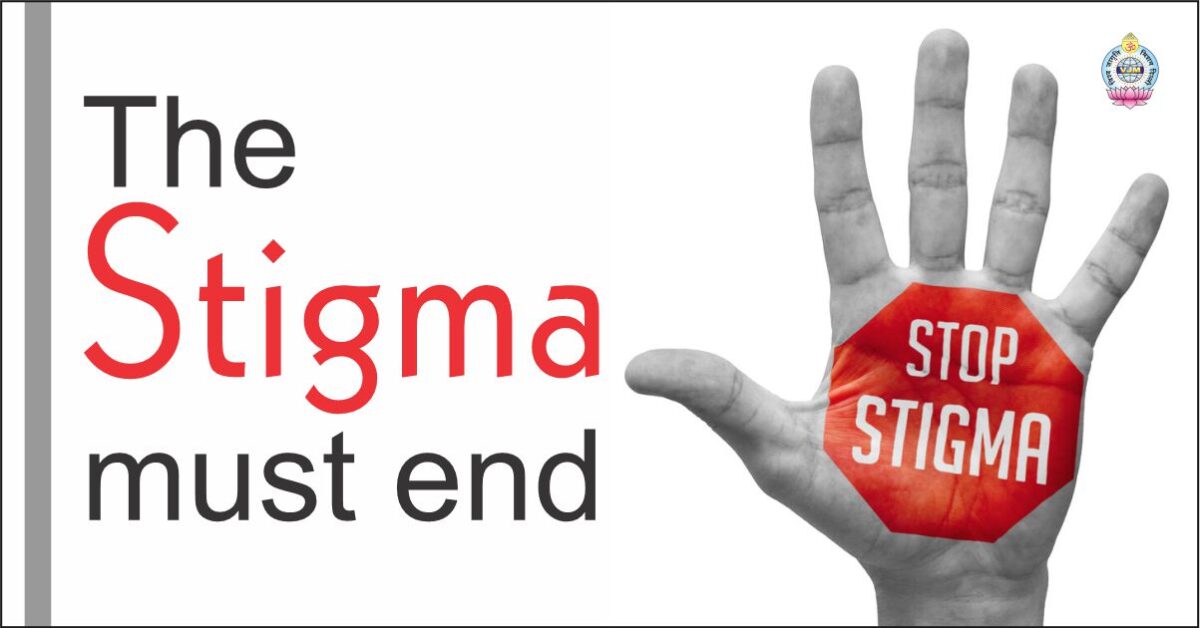The stigma must end | Sudhanshu Ji Maharaj
The Stigma Must End
‘Compassion is a muscle that gets stronger with use.’
Mahatma Gandhi
Leprosy is perhaps the oldest disease known to humans, but the disease has the same stigma attached to it, as mankind has recently experienced during the Covid-19 pandemic. The right knowledge and training must be imparted at all levels to dispel this fear. The spread of awareness about the disease would help fight against leprosy and the unfortunate stigma attached to it. The disease must not stop the socio-economic empowerment of persons affected by it as Leprosy cases still emerge in India.
According to the National Health Portal of India, the country has the highest burden of the disease. It has reported a decreasing number of new cases for the past 2 years, by nearly 15,000 cases (135,485 in 2016 to 120,334 in 2017–2018) and a reduction in new pediatric cases, to less than 10,000 (9227 in 2018) from more than 10,000 (10,287 in 2017) previously. So, cases are decreasing, but the disease is still prevalent in India along with the stigma attached to it. This discrimination affects the patients physically and emotionally.
The Stigma
The dread of leprosy leads to discrimination and humiliation which is due to a lack of proper understanding and knowledge about the disease. There are a lot of misconceptions about its transmission and treatment. Stigma affects various aspects of the lives of patients that may include interpersonal relationships, marriage, jobs, outdoor activities, attendance at family functions, and moving out for day-to-day chores. Such discrimination is the most disastrous barrier to ending leprosy, although the dreadful disease is 100% curable if detected early.
Positive Steps to End the Stigma
Thankfully, a lot of positive steps are underway globally to end the stigma around Leprosy. According to WHO’s Global Leprosy Strategy 2016-2020, public health interventions such as active. Leprosy case-finding, better treatment regimens, and strengthened surveillance continue to reduce leprosy’s spread. Along with that, the disease’s social aspects are also brought to the front.
These policies aim at ending leprosy-related discrimination, stigma, and prejudice and they are made to be at the center of all leprosy programs. Many programs are underway to empower people with leprosy to be agents of social change which is, of course, a good sign. While the inclusion of patients in vocational training is already continuing globally, these programs should be expanded.
The human rights of persons affected by leprosy are also a priority. In recent years, India has repealed a few legislations that discriminate against persons affected by leprosy.
In 2016, for example, it repealed the colonial-era Lepers Act, and in 2019, the government has also repealed a law that previously allowed leprosy as a legitimate ground for divorce. Such government initiatives must be commended with open arms as they motivate people for ending the stigma.
Compassion is the Way Forward!
Mankind must renew focus on moving towards a leprosy-free world and ensuring the disease is no longer a source of anxiety and stigma. This is a challenge for everyone. Compassionate awareness campaigns to deal with shame and discrimination can be undertaken so that those infected come forward for treatment and don’t feel left out.
Remember, God is the divine personification of compassion. Lord Buddha and Mahavir exemplified this compassion in their personal conduct always and considered it as an integral part of attaining liberation. The presence of compassion is indicative of a human being’s spiritual and personal growth. So, advocate compassion for all, as part of this universal message that all life forms are part of a single large universal family (Vasudhaiv Kutumbakam).
Each and every element in the universe is a manifestation of God, who is also present in every living and non-living entity. And so, realize His universal presence and extend the same feelings of love and acceptance to all including patients of Leprosy. The world can never forget the selfless service of the great Mother Teresa for the lepers of India. She said, “The biggest disease today is not leprosy or tuberculosis, but rather the feeling of being unwanted.” Let no leper feel unwanted or deprived of any treatment. With everyone’s efforts and compassion, this stigma associated with leprosy must be eradicated from the face of this earth.


1 Comment
There are so many diseases. Leprosy is one. Lepers need kind attention. Let us not hate them. Help them. Om Guruve Namah.